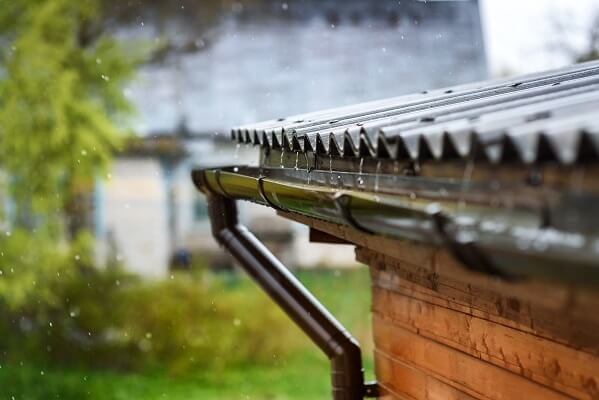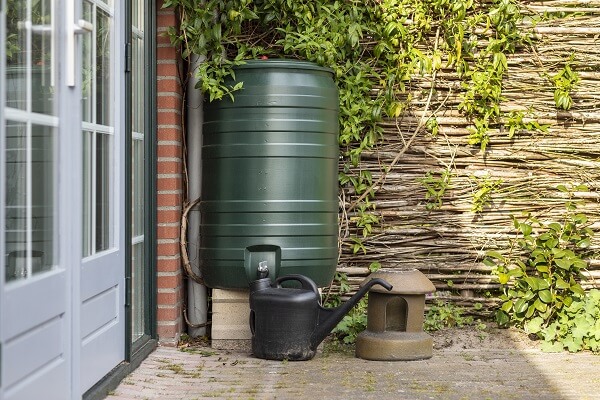It isn’t easy to pinpoint when exactly people started harvesting rainwater. But it’s safe to say that it may have happened even before large civilizations began.
Invention and innovation have blessed modern civilization with more accessible ways to acquire clean water. But pipe maintenances and droughts naturally occur. Thus, having a stock of water close by can help during these times.

If you haven’t thought about collecting rainwater yet, this could be your opportunity to do so. Rainwater has a lot of uses in the home. Here’s a list of what you could use it for:
-
For Eating and Drinking
Water is essential in the kitchen. Other than being used for cleaning, you’ll need water to cook food and, of course, to drink. This kind of rainwater is called ‘potable’ water. This means it’s safe for human consumption.
Did you know that drinking rainwater is safer than you think? Rainwater contains alkaline pH that detoxifies and removes the free radicals in your body. It’s also low in mineral content, and water for public intake is usually mixed with chlorine and fluoride. Too much of these minerals can cause both minor and major health issues.
As long as you don’t live near radioactive sites or factories, rainwater should be safe for you to drink. Take note not to drink water straight from your roof either. Dirt and other chemicals may gather on it and get carried off when it rains.
The best way to harvest rainwater is by using a tank from a reputable company. Rain-collecting tanks come in various sizes. If you’re unsure which size best matches your home, you can check out the catchment calculator here.
Furthermore, many of your favorite recipes require clean water in the cooking process. Think of pasta, soup, and just-add-water meals like instant noodles. Fresh produce like fruits and vegetables need cleaning by water before adding them to pastries or stews. If your rainwater-collecting system has filters installed, you can use the water directly into your food as is.

-
For Bathing
Ready to rinse off the day’s grime but not a drop is coming out of the shower? When you’ve got harvested rainwater ready, you’ll never have this problem again.
The potable water used in cooking and drinking is also the safest for bathing. When using rainwater, ensure the water has been filtered and treated well. You may hire professional help to install a rainwater harvesting system so you’ll only collect clean water.
You may also choose which type of harvesting system you prefer. Just talk to the professionals to see which approach works best for you and your home. Gone will be the days where you step out of the shower with shampoo still in your hair.
-
For Doing The Laundry
The water you use for washing clothes is known as ‘limited’ water. This is also used to wash cars, flush the toilet, and water plants. In most households, laundry takes up a large chunk of primary water usage. You can reduce this by washing your clothes in the rainwater you’ve collected instead.
-
For Washing The Car
Washing cars not only takes time but a lot of water. Your water bill can skyrocket if you’re not careful with how much you’re using. With collected rainwater, you can use your regular tap and hose water for cleaning more minor things, saving you both money and water in the long run.
-
For Watering Plants
Plants and trees thrive in most places because of the natural phenomenon we call ‘rain.’ If you’re dedicated to making your home the best place to live in, you may have a garden and some plants as decoration. Though your outdoor plants may already have direct access to water, there will be times when it just doesn’t rain much.
Having rainwater stored in a tank saves your poor plants from this predicament. You can even use this to water your indoor plants instead of relying on your central water system.
-
For Ponds And Fountains
If you like to fancy up your place with a fountain or a pond, you can fill these up with rainwater. Usually, these use the water from your central system, which gets recycled or circulated. But you might need that same water for more important things.
For aesthetic purposes, rainwater is best since you’re not using the treated water meant for drinking or cleaning. It’s highly sustainable and might even attract fauna like birds and squirrels to your property.
-
For Fire Protection
One of the biggest fears a homeowner might face is the possibility of a house fire. Suburban areas may even experience droughts and wildfires that cause these terrible disasters. Often, a simple garden hose isn’t enough to put out a fire. But if you have some stored rainwater, you can lessen the chances of it spreading rapidly.
When installing your harvesting system, make sure the part of the house you’ll put it in is also in tiptop shape. You may collect rainwater straight from your roof going down to the tanks. You also have to know when your gutters need replacing to avoid wasting precious water. Every drop is substantial and may save you and your house when the time comes.
Conclusion
Who would pass up the chance to get free things, especially water? If you’re looking to shift to a more sustainable lifestyle, collecting rainwater is the way to go. Harvesting this natural resource saves you money and protects the environment simultaneously.
Take time to have one installed in your home with the help of professionals. You’ll find yourself enjoying every bit of rainfall, from light showers to heavy downpours.